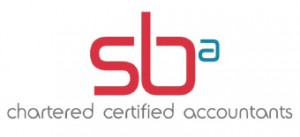Managing your “off the radar” fleet
Our current blog is a guest blog courtesy of www.carlease4u.com and is relevant to employers that do not offer a company car to its employees, but do require their employees to travel on business trips.
Even if you do not offer a company car allowance or a car lease, there is lots of important information you need to be aware of, particularly if your employees use their own car for business trips. Here is what you need to consider when looking at ALL vehicles.
Employers retain responsibility for an employee’s safety, even when the employee drives their own car for business. Often, this can cause unforeseen problems, as these vehicles are typically “off the radar” of most companies — certainly in respect of being fit for purpose.
Whilst many companies were unwinding their company car fleets due to increase company car taxation (although some green cars do have a relatively low tax burden), many businesses have failed to recognise that they would still have duty of care responsibilities over their employees who drive their own vehicles on company business. These vehicles are referred to as a company’s “off the radar” fleet.
Here are a few tips that should help businesses to manage its “off the radar” fleet:
- Support your “off the radar” fleet employees, so that they make an informed decision about taking a Company Car Allowance in lieu of a company car. Employees could spend the next three or four years wondering if they have made the right decision. Help them by explaining exactly what each choice will mean to them in terms of their personal tax position and other items of expenditure associated with running a car.
- Take advice from an accountant to determine the exact tax liabilities/savings of company cars, for both employees and employers. There are a number of lower CO2 emission cars out there that are not as bad as you may think from a tax point of view.
- Regularly check the driving licences of your employees. Perhaps you could make it compulsory for all business drivers to regularly submit copies of their driving licences, as businesses are required to have these records by law. Better still, use a third party to run a thorough check with the DVLA.
- Where an employee’s own vehicle is used for business journeys, restrict their choices to exclude soft-tops or old cars. Staff will be resistant to any policy that comes across as too heavy-handed, but it’s fair enough to mandate that the vehicle has four doors, four seats and is of professional, business-like appearance.
- Invest in a robust mileage tracking tool (or procedure), preferably with a payroll reporting facility.
- Tighten-up the management of a mixed fleet. Many companies offer a casual version of this by offering car allowances and company cars alongside each other, but a specialist mixed fleet provider will manage a mixed fleet in the most tax-efficient way, and take care of all the mile-logging, occupation road risk and general administration tasks. This type of scheme would only be suitable for fleets of over 50 cars.
To find out more about car leasing, or if you would simply like a chat about leasing, visit www.carlease4u.com.


